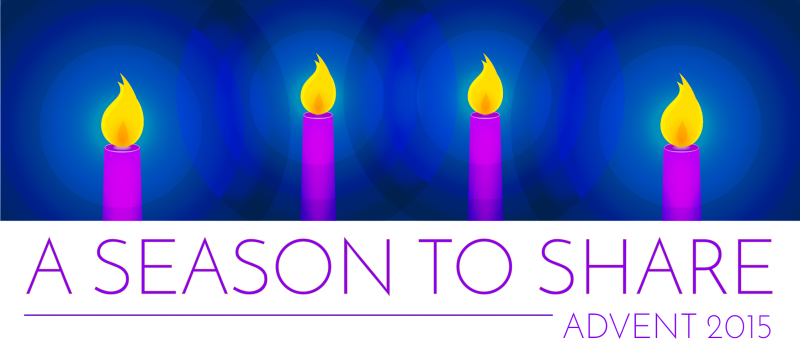Trisha Huffman | December 12, 2015
Advent. For Christians, the proper noun means “Jesus is coming.” Adventure, the common noun, connotes exploration, a setting forth, a future requiring bold ingenuity in the face of risk and uncertainty. For me, John the Baptist personifies these two words. For it is with the prophecy of John’s birth that the writer of the gospel of Luke opens his “orderly account” (Luke 1:3) of Jesus’ origins and sojourn on earth. From that point on John is the harbinger of Jesus’ arrival, ministry, and ultimate gift of redemptive grace. He will “make ready a people prepared for the Lord” (Luke 1:17) and “go before the face of the Lord to prepare His ways” (Luke 1:76).
Throughout Biblical and secular historical accounts John the Baptist is regarded as the forerunner or precursor to Jesus. The earthly lives of the human John and the divine Christ share narrative elements. The envoy angel Gabriel foretells both births. First he informs the old priest Zacharias that he and his elderly, barren wife, Elizabeth, will become first-time parents of a son to be named John (Luke 1:13). Six months later, Gabriel stuns the young virgin Mary with the news that she will bear a son, Jesus, the Holy One, the Son of God (Luke 1:35). John and Jesus began their ministries at the traditional age of 30. John and Jesus each died at the hands of indecisive, intimidated rulers—Herod and Pontius Pilate—who reluctantly sealed the fates of these defendants whom they knew to be innocent and good. One estimate is that John was two years into his ministry when he was beheaded about a year before Christ's crucifixion.
Their lives also intersected. Their mothers were cousins. When the pregnant Mary visited the pregnant Elizabeth, Elizabeth felt her baby leap for joy in her womb at hearing the voice of Mary. Years later, under protest, John baptized Jesus, whom he consistently proclaimed as the Lamb of God. When Jesus learned of John’s death, he withdrew to grieve and pray in a deserted place. In a final irony, a remorseful Herod conflated John and Jesus: “This is John the Baptist; he is risen from the dead, and therefore these powers are at work in him” (Matthew 14:2).
Thus was John the Baptist set from birth on this great adventure that is Christianity, an exploration of a new way of thinking and acting and being, a faith worth living through and dying for. As we celebrate Advent, the baby Jesus’ arrival with gifts of forgiveness and grace, let us consider John’s role in foreshadowing and fulfilling the prophecy of Christ’s coming to “amend the terms” of Adam and Eve’s sentence to eternal punishment. Gabriel commands Zacharias not to name his son after himself, but to call him John, a Hebrew name meaning “Jehovah has been gracious.” In a way, John the Baptist is “John of the Second Chance,” a bridge from Old Testament prophetic yearning to the New Testament’s sacrificial, redeeming Christ. The grace of Jehovah has come to stay. Allellujah!
Prayer: Thank you, God of Grace and Glory, for sending your Son to walk with us, to teach and love us, to suffer and die for us, the undeserving and often ungrateful children of Earth. Help us renew our striving to become more faithful followers, more courageous disciples, more loving servants, better stewards, and kinder persons to all our fellow man. We will try to keep the spirit of Advent all year long. Amen.
Comments
As a Baptist church affirming the liberty of conscience, we recognize each individual's right to his or her own opinion and welcome your comments, positive or negative. We strive for communication that invites a respectful and personal exchange of opinions and thoughts. This is often not possible through running dialogues in our comment section. To respect the dignity of all persons, we may delete comments that contain profanity, hate speech, or threatening language.
There are no comments



